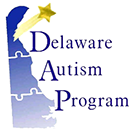Providing comprehensive and targeted training to increase capacity and expertise
The lack of effective training programs is one of the biggest barriers to increasing capacity and expertise: they do not always reach everyone affected by ASD; they may fail to convey the ways that ASD is uniquely challenging; they do not always emphasize evidence-based practices, or build upon the examples of model programs, and; those that consist solely of isolated workshops may promote knowledge but rarely ensures skill.
I help agencies to discover and design comprehensive and integrated programs of training. I focus on the latest, evidence-based practices, drawing from model programs, building cross-domain networks and cross-disciplinary models of care, and focusing on outcomes that improve quality of life by considering the unique needs and challenges faced by parents.
I then help agencies how best to deliver these programs; whether to utilize in-house workshops or adapt university-based courses or certificates, and how to build expertise in delivering training and coaching. Examples of training programs I have helped to develop are listed below, and described in my 2013 book.
Examples
ASD Identification
Effective treatment begins with early screening and diagnosis.
Screening: I led efforts to develop and publish a bilingual training kit (including a video and manual) for the Checklist for Autism in Toddlers, and provide training to community-based practitioners.
Diagnosis: I developed a comprehensive training model for community-based early screening and diagnosis, and implemented at least 6-10 hours of training, coaching, and consultation in ASD diagnosis across 5 different sites in Pennsylvania). I also helped design and deliver an introductory and an intensive training program in screening and assessment at a hospital-based LEND program.
Educational classification: I developed, led, and maintained intensive and comprehensive programs of training for almost 100 professionals involved in the educational classification of ASD across a statewide public school program.
Behavior Support
Problem behavior is the single factor most likely to lead to exclusion from the community and placement in specialized programs.
In hospitals: I was responsible for developing and delivering intensive and specialized training to all staff members in an in-patient treatment program for young people on the autism spectrum in behavioral crisis.
In schools: I developed and implemented comprehensive, grant-funded programs of training and technical assistance in behavior support to psychologists and related training to other staff and parents across a statewide public school program.
Crisis management: I helped to coordinate programs to train front-line staff in managing behavioral crises across hospital and school settings, and integrating these with policy and oversight in a statewide public school program and an in-patient treatment program for young people on the autism spectrum in behavioral crisis.
Comprehensive Planning
Success requires matching a broad set of goals to powerful methods, delivered by a team with a a shared vision shaped with advocates.
Awareness and advocacy: Across many school and hospital settings, I have designed and delivered training to raise awareness about the challenges of living with autism, and the need to engage advocates. At an autism research center for example, I led efforts to substantially revise and then lead one-day intensive workshops for parents of newly diagnosed children and the professionals who serve them..
Comprehensive programs: I have helped to develop, coordinate, and deliver many different comprehensive training programs for educators. For example:
- I substantially revised the core courses for a required graduate teacher certificate in autism to align with current practices, and then taught these courses to teachers. I also helped to develop a mentor/coach program.
- For a community-based early intervention provider, I helped to develop a series of trainings to revise core teaching methods as part of the broad program changes.
- I revised the syllabus for an Introduction to Autism graduate seminar to prepare teachers to evaluate and utilize current practices. I then adapted the course to a hybrid format to increase access.
Extended supports for quality of life: I designed and delivered a 6-hour training program for more than 80 community-based in-home behavioral providers to address the specific needs of children and adolescents with ASD, to take full advantage of Pennsylvania’s autism insurance legislation.
Coordinated care: As ASD Training Director for a hospital-based LEND program, I developed an 18-hour program for all LEND fellows, and intensive training for ASD LEND Fellows including experience in ASD assessment and parent training.
Transition planning: I designed a comprehensive two year, college transition program for youths on the spectrum that introduced a number of training innovations (like ways to incubate professional development for community partners).
![]() ASERT Director
ASERT Director
State funded ASD research and training collaborative
![]() LEND ASD Training
LEND ASD Training
Developing and delivering a multidisplinary ASD training program
 ASD Identification
ASD Identification
Developing and implementing a research-based protocol for ASD identification across the state.
![]() ASD In-Patient Program
ASD In-Patient Program
Intense treatment for children in severe behavioral crisis
 Behavior Support
Behavior Support
Revising standards of practice and oversight coordinated with independent peer review.
![]() ASD In-Patient Program
ASD In-Patient Program
Intense treatment for children in severe behavioral crisis
 Student Safety
Student Safety
Appropriate use of seclusion and restraint, complying with stringent standards
 NextSteps Workshops
NextSteps Workshops
Introducing parents and practitioners to ASD
 Staff Training
Staff Training
Significant investments in staff /parent training, and ASD teacher certification requirements.
Early Intervention
![]() Restructuring a flagship ASD preschool program for an urban district
Restructuring a flagship ASD preschool program for an urban district
![]() Teacher Training
Teacher Training
A model hybrid graduate seminar introducing ASD to special education teachers.
![]() ASD Wraparound Training
ASD Wraparound Training
For community-based providers of services for children and adolescents
![]() LEND ASD Training
LEND ASD Training
Developing and delivering a multidisplinary ASD training program
 Transition Pathways
Transition Pathways
Using collective impact to incubate program development for a proposed college program
